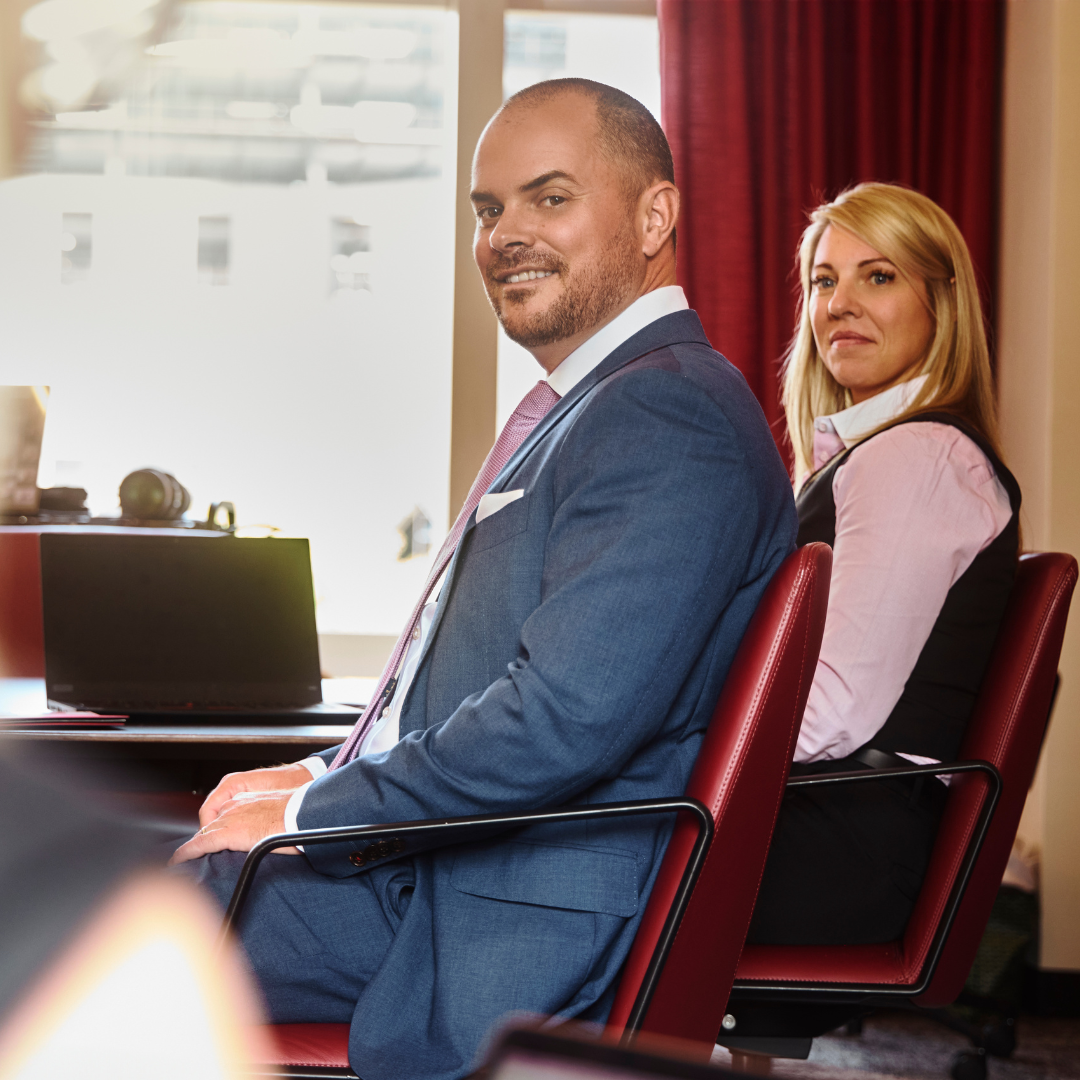Rotator Cuff Injury Lawyer
Rotator cuff injuries cause pain and limit mobility. If you believe your injury was caused by medical negligence,
our experienced lawyers are here to help.
Have you been told you have a rotator cuff injury, or do you suspect you might have one?
What is a Prevnar vaccine injury?
A Prevnar vaccine injury refers to adverse reactions or complications that individuals may experience after receiving the Prevnar vaccine. Prevnar is designed to protect against pneumococcal diseases such as pneumonia and meningitis, but in rare cases, recipients may suffer from side effects. These vaccine injuries range from mild to severe and may include: shoulder injuries, autoimmune disorders, neurological complications and other serious reactions.
Hear Cheryl's Vaccine Injury Story
Cheryl suffered SIRVA (shoulder injury related to vaccine administration) following a flu shot. Her vaccine injury claim was filed in the VICP by vaccine lawyer Max Muller where she obtained a large cash settlement for her pain and suffering, lost wages and out of pocket medical expenses.
What is a Rotator Cuff Injury?
The rotator cuff is an important part of your shoulder, consisting of 4 muscles and their associated tendons. These structures work together to stabilize the shoulder joint and allow for a wide range of motion. When any of these tendons or muscles are damaged, it results in a rotator cuff injury. Understanding this type of injury can be the first step toward finding relief and getting the support you need.
Can vaccine administration cause a Rotator Cuff injury?
Yes, vaccine administration potentially causes a rotator cuff injury. Damage occurs when an injection is improperly administered. Instead of the vaccine being injected into the deltoid muscle, it might be placed too high or too deep, affecting the structures of the shoulder. Injuries occurring in this way are known as Shoulder Injury Related to Vaccine Administration (SIRVA).
If you've experienced shoulder pain or reduced function following a vaccine injection, it’s important to seek medical attention. You may be dealing with a vaccine-related rotator cuff injury, and early intervention makes a big difference in your recovery.

4,500
1,750+
5 Stars
What are the effects of Rotator Cuff injuries?
Dealing with a rotator cuff injury means physical discomfort and the knowledge that it affects your daily routine and overall quality of life. The frustration of being limited in simple everyday tasks, combined with the uncertainty of recovery, is quite distressing. Here’s how this type of injury might impact various aspects of daily living:
- Personal Care: Difficulty in performing tasks such as combing hair, getting dressed, or bathing due to limited arm mobility and pain.
- Household Chores: Challenges in reaching high shelves, carrying laundry, or vacuuming, all of which require shoulder movement and strength.
- Work-Related Tasks: Problems with job-related duties, especially in roles requiring physical labor or repetitive arm movements, potentially leading to reduced work hours or the need for significant modifications.
- Driving: Reduced ability to drive comfortably or safely because of the inability to turn the steering wheel fully or react quickly in traffic situations.
- Sleeping: Trouble finding a pain-free sleeping position, leading to disrupted sleep and decreased overall rest.
-
Physical Activity: Limitations on exercising, particularly activities involving lifting weights, swimming, or playing sports that rely heavily on arm strength and flexibility.
What are the symptoms of a Rotator Cuff injury?
Symptoms and signs of rotator cuff injuries come in various shapes and intensities. Unfortunately it’s an unpleasant one to get due to the daily use of arms and particular motions. Here are what you could encounter after suffering a rotator cuff tear or injury:
- Persistent Shoulder Pain
- Weakness in the Shoulder
- Limited Range of Motion
- Cracking or Popping Sensations
- Tenderness and Swelling
- Difficulty Performing Routine Activities
If you are experiencing any of these symptoms then it’s time to reach out for help. Take care of yourself first but make sure you contact My Vaccine Lawyer for expert legal advice.

Diagnosis and treatment of Rotator Cuff tears
The severity of the tear affects how the diagnosis is conducted and what treatment is recommended. Muscle and tendon tears are notoriously difficult to recover due to scar tissue, limited blood supply to help them heal as well as the strain put on by use. However, with patience, discipline and possible surgery, rotator cuff tears don’t have to feel like they are stopping you from living. Here’s what to expect:
Diagnosis of Rotator Cuff Tears
Diagnosing a torn rotator cuff involves:
- Medical History and Physical Examination: Your doctor will discuss your symptoms and perform a physical exam to check for tenderness, range of motion, and shoulder strength.
- Imaging Tests:
- X-rays: These help rule out bone issues but don't show soft tissue injuries.
- MRI: Provides detailed images of the rotator cuff, revealing the presence and extent of a tear.
- Ultrasound: Visualizes the muscles and tendons in real-time, assessing the rotator cuff.
Treatment of Rotator Cuff Tears
Treatment depends on the severity of the injury and includes:
- Non-Surgical Treatments:
- Rest and Activity Modification: Avoiding painful activities to help the tendon heal.
- Physical Therapy: Strengthening shoulder muscles and improving flexibility.
- Medications: Over-the-counter pain relievers and anti-inflammatory drugs.
- Steroid Injections: Temporary relief from pain and inflammation.
- Surgical Treatments:
- Arthroscopic Repair: Minimally invasive procedure using small incisions.
- Open Repair: Larger incision for direct access to severe tears.
- Tendon Transfer: Using a tendon from another area if the rotator cuff is too damaged.
- Shoulder Replacement: Recommended in severe cases with significant arthritis.
It's important to keep detailed records of all your consultations and treatments related to your rotator cuff injury. These documents are necessary for building a strong case and receive compensation. Accurate records help demonstrate the extent of your injury, the medical expenses incurred, and the impact on your daily life. Keeping organized documentation can significantly strengthen your claim and lead to a successful rotator cuff injury settlement.
How we can help
At My Vaccine Lawyer, we understand the pain and frustration that comes with a rotator cuff injury. We're dedicated to treating you with the respect and empathy you deserve as we go through this process together.
Rotator cuff injuries are tough, but you don't have to deal with the legal fallout alone. A rotator cuff injury lawyer is well-versed in the medical, legal, and factual intricacies involved in these cases, guaranteeing we're equipped to handle any challenges that arise.
- Free Case Evaluation: We will review your case and let you know if you are eligible for compensation.
- No Costs: You do not pay attorneys fees or costs to file a case in the vaccine program.
- Experienced & Skilled Representation: Our team has years of experience fighting for the rights of injured clients, securing compensation for medical expenses and other losses.
If you or someone you know is suffering from a rotator cuff injury due to a vaccine, accident, work-related activity, or negligence, don't wait to seek help. Attempting to go through the legal process on your own can hinder your chances of obtaining the compensation you're entitled to. Contact us today for a consultation. We're here to support you every step of the way and fight for the justice you deserve.
Frequently Asked Questions
-
What is a rotator cuff injury settlement?
A rotator cuff injury settlement is the compensation you may receive if your injury was caused by negligence, such as from a vaccine or a workplace incident. This settlement can cover medical expenses, lost wages, pain and suffering, and other related costs.
-
When is rotator cuff repair surgery necessary?
Rotator cuff repair surgery is typically necessary when there is a significant tear in the rotator cuff tendons that cannot heal on its own. This surgery aims to restore the function and strength of your shoulder, allowing you to return to your normal activities.
-
How do you handle shoulder injury cases?
We handle serious shoulder injury cases with a comprehensive approach, starting with a free case evaluation. Our experienced lawyers will gather evidence, consult with medical experts, and negotiate with insurance companies to secure the best possible outcome for you.
-
What should I do if I have a left rotator cuff tear?
If you have a left rotator cuff tear, it's important to seek medical attention right away. Following your diagnosis, contact our legal team to discuss your case. We can help you understand your rights and pursue compensation for your injury.
-
What are the common causes of rotator cuff injuries?
Rotator cuff injuries often occur due to repetitive overhead movements, heavy lifting, or degenerative changes as we age. These injuries can also be linked to other shoulder injuries, such as dislocations or fractures.
-
How can I prevent rotator cuff injuries?
To prevent rotator cuff injuries, it's important to maintain good posture, perform regular shoulder-strengthening exercises, and avoid repetitive overhead activities that strain the shoulder. Additionally, being mindful of how shoulder injuries occur can help you take proactive steps to protect your shoulder.